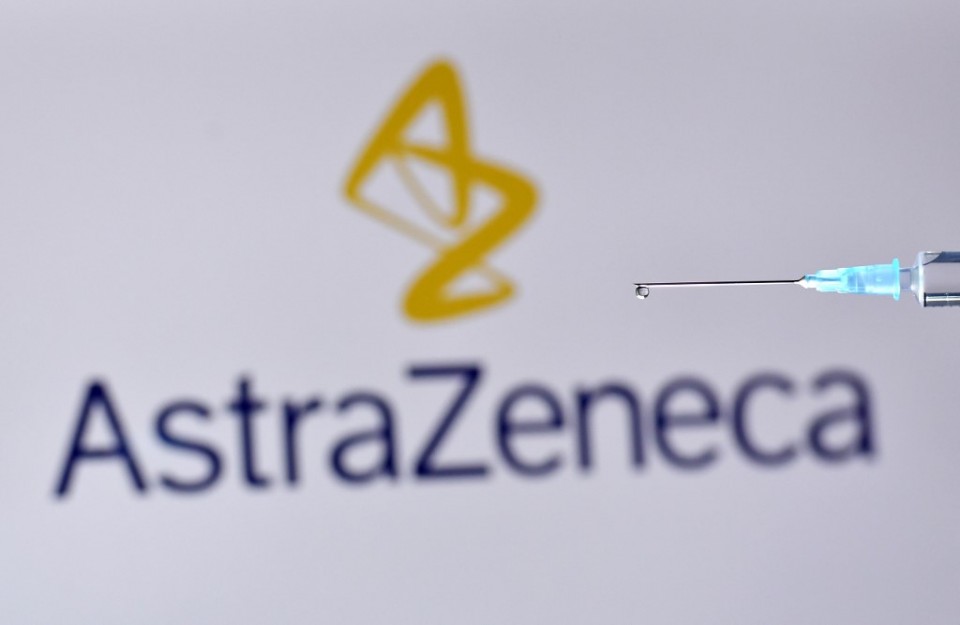
by Kelly MACNAMARA
PARIS, France (AFP) — Oxford University and AstraZeneca on Tuesday became the first Covid-19 vaccine makers to publish final-stage clinical trial data in a scientific journal, clearing a key hurdle in the global race to produce safe and effective drugs for the coronavirus.
The study, published in the respected Lancet medical journal, confirmed that the vaccine works in an average of 70 percent of cases.
It comes during a flurry of positive developments that have raised hopes the roll-out of vaccines can help begin to restrain a pandemic that has killed more than 1.5 million people and stricken societies worldwide.
Britain on Tuesday became the first country in the Western world to start immunizations, using a rival vaccine developed by Pfizer-BioNTech after approving it for general use last week.
Frontrunners Pfizer-BioNTech and US biotech firm Moderna have reported efficacy of 95 percent and 94 percent respectively and have given data to regulators.
But AstraZeneca is the first to have its trial efficacy results confirmed in a scientific paper, the Lancet said.
Andrew Pollard, the director of the Oxford Vaccine Group who led the study, said publication showed developers were sharing data “transparently”, adding that a range of vaccines would be needed.
“This really can’t be a competition between developers, this has to be a competition against the virus,” he told a press briefing.
The study showed the vaccine had an efficacy of 62 percent for those given two full doses, and of 90 percent in those given a half, then a full dose.
AstraZeneca and Oxford faced questions about their results when they released an overview last month, after it emerged that the half dose was given because of a mistake.
There were also concerns that this half-dose group — 1,367 participants — did not include adults over the age of 55 years.
Researchers said they provided extra analysis to Lancet peer reviewers suggesting improved results for the half-dose group was not down to other factors like age.
Pollard said once researchers realised the measurement discrepancy, it was incorporated into the trial with the agreement of regulators.
“I think it is fair to say it needs more looking into to explain the intriguing result,” he said.
AstraZeneca said it would be up to regulators to decide dosing recommendations based on the data provided.
‘Dilemma’
The results are likely to present a “dilemma” for drug authorities, said Simon Clarke, Associate Professor in Cellular Microbiology at the University of Reading.
He said while the half-dose regime showed better protection against disease and also in reducing asymptomatic transmission, the group was “relatively small” and did not contain older people.
“It remains possible that if the regulators allowed the vaccine to be used in this manner, the most at-risk group may not be protected,” he said.
To calculate efficacy the authors analyzed data from phase 3 — final stage — clinical trials in Britain and Brazil, involving 11,636 people, half of whom had the vaccine of either dosage and the other half a placebo.
They found 131 cases of symptomatic Covid-19 more than 14 days after the second vaccine dose — 30 in the vaccine group and 101 in the control group, or 70 percent average efficacy.
The study said there had been no hospitalizations or severe disease reported in the Covid-19 vaccine group so far.
Researchers said the vaccine was “safe” after analyzing data from a total of 23,745 participants in trials in Britain, Brazil and South Africa.
One participant in the vaccine group developed transverse myelitis — a neurological disorder — that was “possibly” related to the drug.
But they have recovered and continue to be part of the trial, the study said.
AstraZeneca said in a statement that it has begun giving data to regulators around the world and is seeking World Health Organization emergency use authorization to speed up potential availability in low-income countries.
If approved it is aiming to produce up to three billion doses in 2021.
© Agence France-Presse







